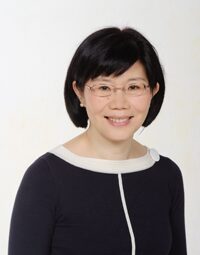Grant title
A prospective study of long-term intake of dietary isoflavones and lignans on the risk of recurrence and mortality in Chinese women with early-stage breast cancer
Background
The effects of dietary phytoestrogens on breast cancer outcomes remain inconclusive. Conflicting results arose from cell or animal studies and human studies cannot conclude whether dietary phytoestrogens are safe, have no effects, or are beneficial to breast cancer survivors. Only two studies have examined both isoflavones and lignans on breast cancer outcomes. No data is available in Asia about the effects of both post-diagnosis dietary isoflavone and lignan intakes on hormonal therapies or overall survival.
Aims and objectives
This study aims to examine whether habitual high intake of dietary isoflavones (including soy and other food sources) and lignans is related to a lower chance of breast cancer recurrence or mortality among breast cancer survivors.
Objective I: To examine the effects of pre- and post-diagnosis soy intake on breast cancer outcomes (recurrence and mortality) among Chinese women with early-stage breast cancer at 60 months after diagnosis.
Objective II: To estimate the intake of dietary isoflavones (including soy and other food sources) and lignans at 36 months and 60 montha after diagnosis, and to examine their relation with the chances of breast cancer outcomes (recurrence and mortality) among Chinese women with early-stage breast cancer at 60 months after diagnosis.
How it will be done
Setting: A follow-up study built on an ongoing three-year study on the effects of soy intake and breast cancer prognosis in Hong Kong.
Subjects: 1,420 Chinese breast cancer survivors recruited between January 2011 and June 2013 at two regional hospitals. Women in the original ongoing study are invited for participation if they have completed the initial interviews and are free of recurrence at the time of invitation. Women who are at stage IV cancer or have breast cancer recurrence will not be invited. Written consent will be obtained.
Methods: Face-to-face interviews using a food frequency questionnaire is used to collect information on intakes of soy, other isoflavone-rich foods, lignan-rich foods, and overall diet at 36 months and 60 months after diagnosis. A structured questionnaire is used to collect sociodemographics and lifestyles factors. Disease information is extracted from medical records up to 60 months after cancer diagnosis. Body measurement will be conducted using standard methods.
Dietary analyses: Dietary intake of isoflavones and lignans will be calculated using published databases. Energy and nutrient intakes will be calculated using China Food Composition Table 2002.
Statistical analyses: Advance statistical methods for follow-up studies will be used to examine the relationship between high and low intakes of dietary isoflavones and lignans with the defined outcomes (recurrence and mortality). Other factors that may relate to the dietary phytoestrogen intake or breast cancer outcomes will be considered. Analyses will be performed by subgroups (treatment types, hormone receptor status, menopausal status, use of endocrine therapies, and cancer stages).
Potential impact
With the fast-growing population of breast cancer survivors, the study will add to the limited data on the effects of dietary phytoestrogen on breast cancer outcomes. The results of the study will guide both clinicians and breast cancer survivors on the safety of dietary isoflavones or lignans, and provide dietary recommendations regarding soy and other phytoestrogen-rich foods.
Grant publication
- Adherence to the World Cancer Research Fund/American Institute for Cancer Research guideline is associated with better health-related quality of life among Chinese patients with breast cancer
- Longitudinal changes in sports activity from pre-diagnosis to first five years post-diagnosis: a prospective Chinese breast cancer cohort study



